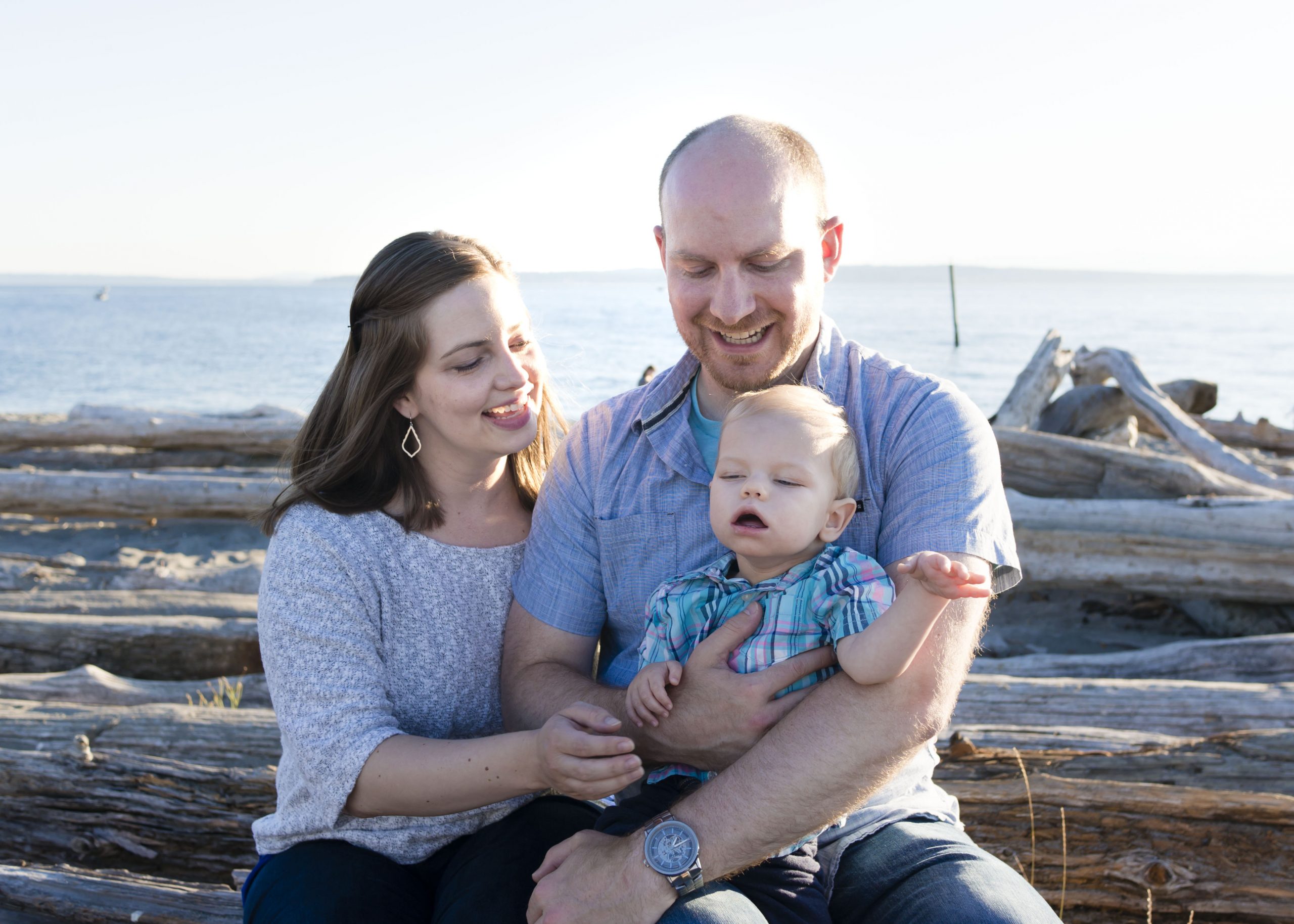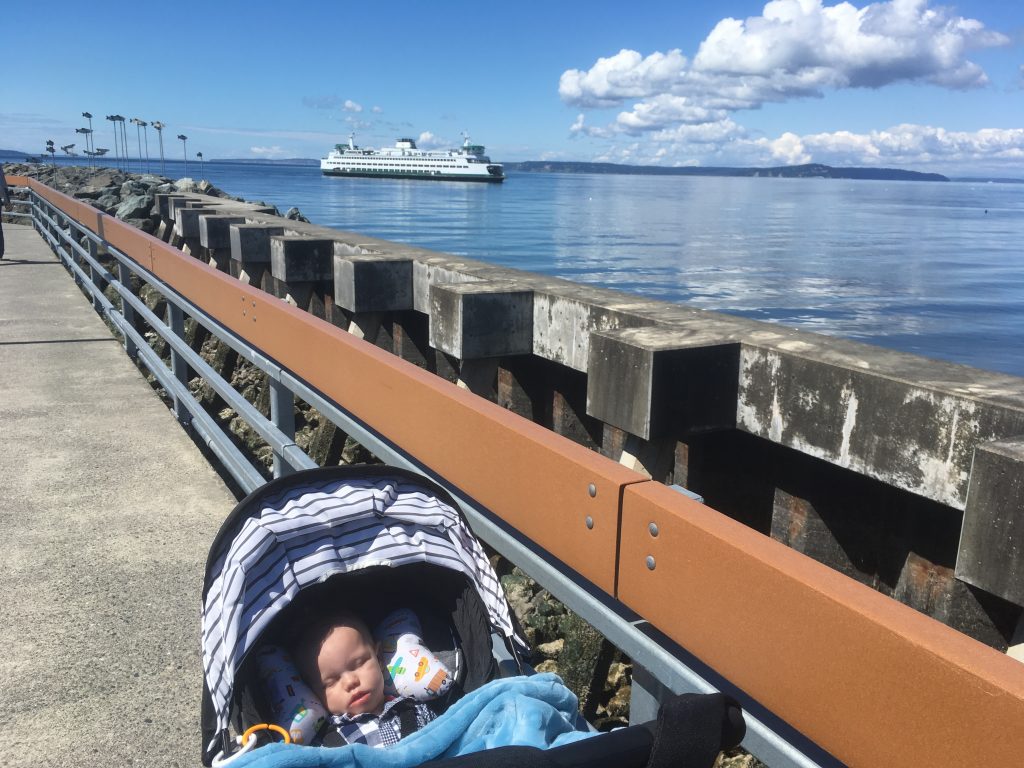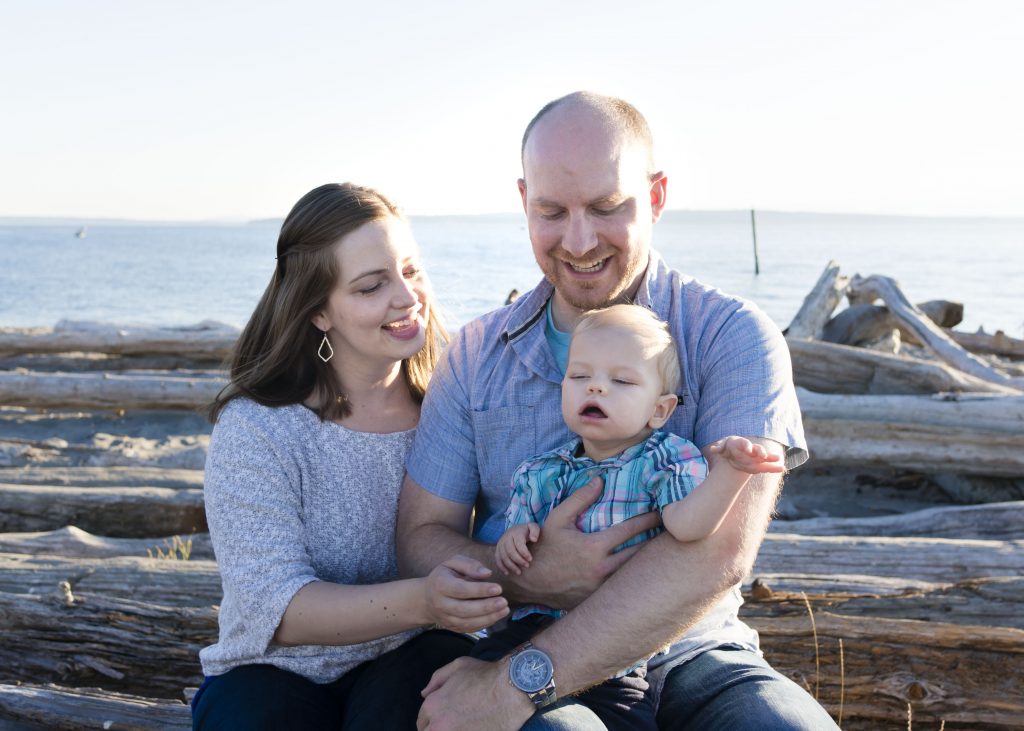11/1/2021
·Enable high contrast reading
The Strength in Staying

When Colson was two, I wanted to run away. Up until that point, I had faced the complexity of his life with mitochondrial disease with a blend of hopefulness and stoicism that served us well – until it didn’t. An innocuous event triggered my flight response. Colson and I took a stroll along the marina in our hometown – one of our favorite activities. As we walked north along the pier, the Salish Sea and Olympic mountains loomed to our left, and the port bustled with people to our right, all of us enjoying some unexpected February sunshine.
 As usual, the food backpack with our feeding pump was hooked onto the stroller while it pushed Colson’s continuous feeds through his G-tube. The suction machine was tucked in the bottom of the stroller, ready to clear his airway should a phlegmy cough appear out of nowhere. The emergency seizure med was primed in the diaper bag, right alongside the emergency medical letter that we took everywhere should we need to call the paramedics. I basked in my pride and gratitude for simply making it outside on this day when I spotted him – a disabled teenage boy, built like a linebacker, sitting in a wheelchair soaking up the rays. He had people with him – perhaps parents or caretakers or siblings. It was obvious that they, like me, had worked hard to get him out the door to enjoy nature’s beauty. He, and they, looked so peaceful. I found it incredibly disturbing.
As usual, the food backpack with our feeding pump was hooked onto the stroller while it pushed Colson’s continuous feeds through his G-tube. The suction machine was tucked in the bottom of the stroller, ready to clear his airway should a phlegmy cough appear out of nowhere. The emergency seizure med was primed in the diaper bag, right alongside the emergency medical letter that we took everywhere should we need to call the paramedics. I basked in my pride and gratitude for simply making it outside on this day when I spotted him – a disabled teenage boy, built like a linebacker, sitting in a wheelchair soaking up the rays. He had people with him – perhaps parents or caretakers or siblings. It was obvious that they, like me, had worked hard to get him out the door to enjoy nature’s beauty. He, and they, looked so peaceful. I found it incredibly disturbing.
Seeing a disabled child like mine, older and bigger, forced me to look into our future and admit what I’d been holding at bay for so long: every future as Colson’s mother was going to be hard. Devastatingly difficult. Behind door number one was the future where Colson lived for years while requiring a level of complex care that had already decimated my own health and had the potential to wipe out my marriage. Behind door number two was a future where Colson’s disease killed him young, and I had to learn to live with a hole blown through my life. Each path forward meant extreme suffering for me and my husband Jacob. Our job was to forge the path that led to the least suffering for Colson. The weight of that responsibility sent me into a tailspin.
Late that night, while Colson and Jacob slept in our room and my in-laws slept in the guest room, I sat on the couch in the living room between the two rooms and wailed into a pillow for over an hour. I kept looking at the back door – playing out my imminent departure. I would grab the car keys from the kitchen counter; sneak out; and just drive. Probably north, towards the open fields of the Skagit Valley, or perhaps east, to wander in the wooded Cascade Mountains. The ultimate destination didn’t matter. I just needed to move forward in time with some semblance of control of my route. To get far enough away for somebody else to be in charge, indefinitely. But I was only wearing my formula-stained nightgown, and I knew that with kids like mine, the harder thing is often the right thing. So I stayed.
 Staying hurts. Every choice parents of complex kids make is a choice to face a difficult future. Palliative care providers help us peek into those futures with curiosity, flexibility, and agency. With the right skills, other providers can foster those futures, too. I faced a difficult decision when Colson was three weeks old and had just been released from his first emergency hospitalization with a medication schedule that seemed to defy the laws of linear time. With my milk supply dwindling and Colson’s weight declining, I could choose to put us on a grueling nursing/pumping/feeding schedule; or choose to move exclusively to formula feeding. Either option required some combination of physical and emotional sacrifice. I wept through these scenarios with an incredibly informed and empathetic lactation consultant.
Staying hurts. Every choice parents of complex kids make is a choice to face a difficult future. Palliative care providers help us peek into those futures with curiosity, flexibility, and agency. With the right skills, other providers can foster those futures, too. I faced a difficult decision when Colson was three weeks old and had just been released from his first emergency hospitalization with a medication schedule that seemed to defy the laws of linear time. With my milk supply dwindling and Colson’s weight declining, I could choose to put us on a grueling nursing/pumping/feeding schedule; or choose to move exclusively to formula feeding. Either option required some combination of physical and emotional sacrifice. I wept through these scenarios with an incredibly informed and empathetic lactation consultant.
I will never forget her words of validation when I told her I believed the best thing for Colson was to be able to eat on-demand on a bottle, and have me save my energy to manage his meds and other emerging needs. It was a huge loss for me, but felt like a courageous choice when she said, “Your body has done a beautiful job nourishing him. Now, he and you need to focus your energy on other things. You can thank your body for what it has done and will continue to do; pat yourself on the breast; and move on to taking care of new needs.” It was everything I needed. Options without agenda. Permission to feel my loss. Validation of my choice, and encouragement for the way forward. These are the gifts of palliative care. These are the anchors that make it possible for parents to stay, and the sails which can push us gently forward when we must move.
The future I feared has found me – now living a life without my son. The loss is tremendous, and the opportunities for self-doubt about the choices we made are endless. I keep coming back to this first incident of agency offered five years ago by this miraculous lactation consultant, and turning her advice inward. I did all I could to care for Colson well. His energy and essence needed to leave this world. I thank my body, and his, for doing so much together for so long. I pat myself on the breast, pressing my right hand into my heart, and move forward into my future.
Liz Morris loves exploring complex questions. Her professional experiences in project management, librarianship, and community development prepared her well for her favorite role as mom to Colson. Colson, impacted by mitochondrial disease since birth, inspired Liz to face the complicated aspects of his life through writing and advocacy. Liz serves as a family advisor at Seattle Children’s Hospital, and is a volunteer ambassador for the United Mitochondrial Disease Foundation. She is committed to helping families find the information they need to help them live well in the face of life-limiting illness. You can find Liz on Instagram @mrsliz.morris





